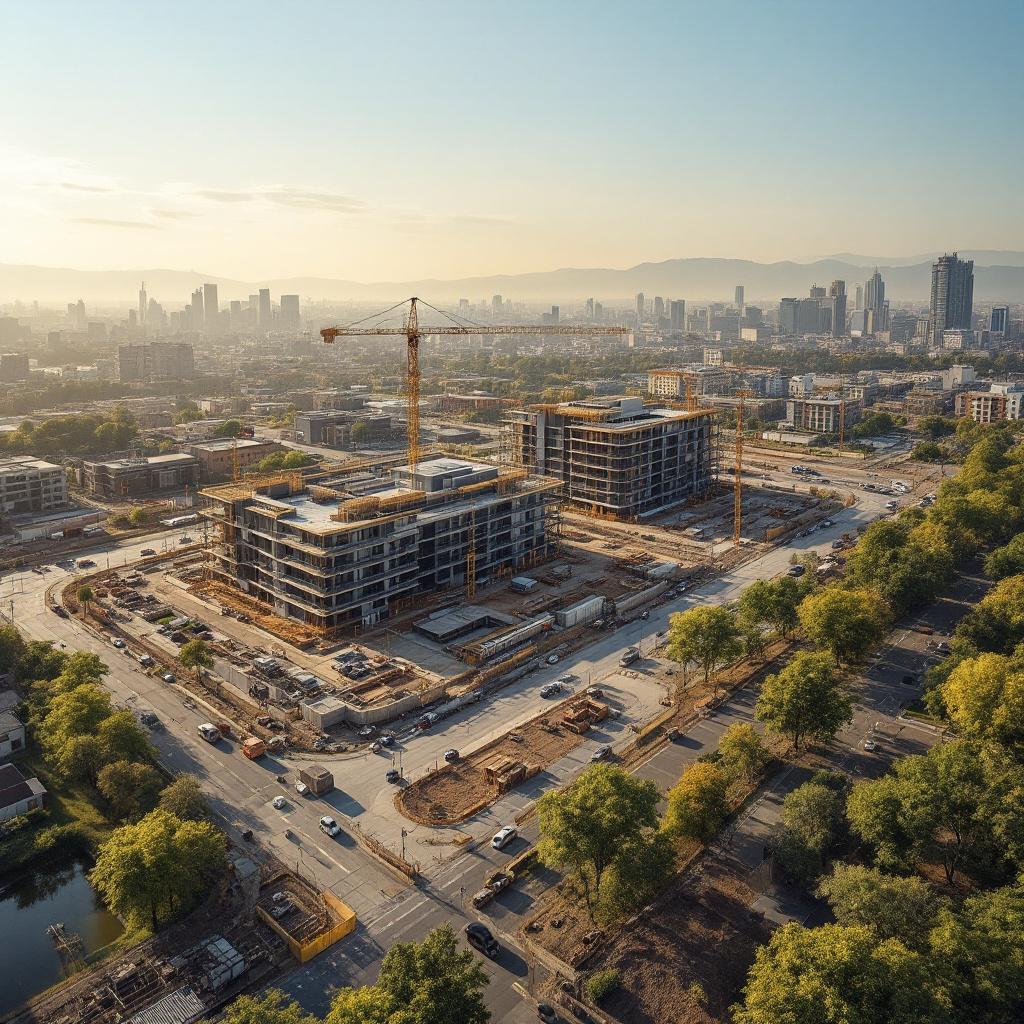In the high-stakes world of real estate and infrastructure, Construction Land Development is the linchpin that transforms raw land into thriving, usable spaces. Whether for residential communities, commercial projects, or industrial facilities, the process demands a multidisciplinary approach—melding strategic planning,regulatory navigation, and sustainable design.
If you’re serious about owning or managing land projects, this comprehensive guide delivers everything you need to dominate construction land development—optimized for SEO, packed with insights, and aligned with industry best practices.
What is Construction Land Development?
At its core, Construction Land Development is the comprehensive process of preparing raw or underutilized land for construction. This includes site analysis, zoning approvals, earthwork, infrastructure installation, and final site readiness for building.
Unlike simple construction, land development involves an earlier phase of transforming terrain, addressing environmental impacts, and aligning with local government regulations. It bridges urban planning, and construction management.
Why Construction Land Development is a Game-Changer
The quality and efficiency of land development directly influence the success of any construction project. Poor site preparation or regulatory missteps lead to costly delays, budget overruns, or even legal roadblocks.
Effective construction land development ensures:
-
Optimized site utilization
-
Cost-effective infrastructure placement
-
Environmental compliance and sustainability
-
Smooth regulatory approvals
-
Enhanced property value and market appeal
Secondary keywords like site preparation for construction, land development process, construction site planning, and land development all tie closely to these goals.
The Step-by-Step Construction Land Development Process
Mastering construction land development means mastering the process flow from raw land to construction-ready plot. Here’s the strategic roadmap:
1. Site Selection & Feasibility Study
Before breaking ground, a thorough site feasibility analysis evaluates:
-
Topography and soil condition
-
Environmental constraints (wetlands, flood zones)
-
Accessibility and existing infrastructure
-
Local zoning and land use restrictions
-
Market demand and financial viability
This phase leverages geotechnical surveys and GIS mapping to uncover hidden site risks and opportunities.
2. Land Acquisition & Legal Due Diligence
Securing the land involves title verification, easements, and reviewing local land development ordinances. Proper due diligence avoids costly litigation and ensures ownership rights.
3. Site Planning & Zoning Approvals
Urban planners design the site plan, integrating roads, utilities, drainage, and building footprints. Coordination with municipal planning departments is crucial to obtain:
-
Zoning permits
-
Environmental impact assessments
-
Stormwater management approvals
A strong grasp of construction land zoning requirements and environmental regulations streamlines this complex stage.
4. Site Preparation & Earthworks
This is the hands-on phase where raw land morphs physically. Tasks include:
-
Clearing vegetation and debris
-
Excavation and grading for optimal drainage
-
Soil stabilization and compaction
-
Installing erosion and sediment controls
Effective site preparation for construction ensures a stable foundation and long-term project success.
5. Infrastructure Installation
Next up is laying the critical backbone infrastructure:
-
Roads and access points
-
Water supply and sewage systems
-
Electrical and communication conduits
-
Storm water drainage systems
Efficient land development integrates these systems to minimize future maintenance costs and environmental impact.
6. Final Inspections & Site Certification
After groundwork completion, municipal inspectors verify compliance with building codes and regulations before granting site certification. This green lights vertical construction to commence.
Key Factors Influencing Construction Land Development Success
No cookie-cutter formula exists, but top performers focus on these leverage points:
-
Regulatory Expertise: Navigate complex zoning, environmental, and permitting frameworks with precision.
-
Sustainability Practices: Incorporate green infrastructure and low-impact development techniques to future-proof projects.
-
Technology Integration: Use drones, BIM (Building Information Modeling), and GIS for precision planning and monitoring.
-
Stakeholder Collaboration: Align developers, contractors, and local authorities early to avoid friction.
-
Risk Mitigation: Proactively address environmental liabilities, soil instability, and utility conflicts.
Construction Land Development Challenges & How to Overcome Them
The path is riddled with challenges that trip even experienced teams:
Regulatory Hurdles
Changing zoning laws and environmental rules can stall projects indefinitely. Solution: Build strong relationships with local officials and hire dedicated compliance specialists.
Environmental Constraints
Sites near wetlands, floodplains, or protected habitats require additional mitigation. Solution: Engage environmental consultants early and design with conservation in mind.
Soil and Drainage Issues
Unstable soil or poor drainage threatens structural integrity. Solution: Conduct thorough geotechnical testing and earthworks and drainage systems.
Cost Overruns
Unexpected site conditions can blow budgets. Solution: Implement robust contingency planning and phased development approaches.
Why Invest in Professional Construction Land Development?
Cutting corners here isn’t just risky—it’s a formula for failure. Professional land developers bring:
-
Expert navigation of legal and regulatory complexities
-
Integrated environmental expertise
-
Efficient project sequencing reducing downtime
-
Cost controls via precise site evaluation and planning
-
Access to industry networks accelerating approvals and financing
Ultimately, this expertise converts raw acreage into profitable, build-ready land faster and safer.
Future Trends in Construction Land Development
Staying ahead means tracking emerging trends shaping the field:
-
Smart land development: IoT sensors monitor site conditions in real-time
-
Sustainable design: Increased emphasis on renewable energy integration and green infrastructure
-
Automation and AI: From drone surveys to predictive analytics for risk management
-
Modular and prefab construction compatibility: Requiring precise site preparation
-
Resilience planning: Designing sites that withstand climate-related risks
Integrating these advances positions your projects at the forefront of innovation and regulatory compliance.
FAQs
What is the difference between construction and land development?
Construction focuses on building structures, while land development prepares raw land by installing infrastructure and securing approvals before construction.
How long does the construction land development process take?
Typically, 6 to 18 months depending on project size, site conditions, and regulatory complexity.
What permits are needed for land development?
Common permits include zoning, environmental impact assessments, storm water management, and building permits, varying by location.
How important is soil testing in land development?
Critical—soil tests determine stability, drainage capacity, and suitability for supporting structures.
Can land development be sustainable?
Yes, by using green infrastructure, erosion control, water management, and minimizing ecological disturbance.
Contact Us Today
Have questions or need instant help? Talk directly to our experts.
Call Now:
+1 403 918 0493
Email Us Anytime
Prefer writing to us? Send us your query and we’ll respond within 24 hours.
canadaproject237@gmail.com

